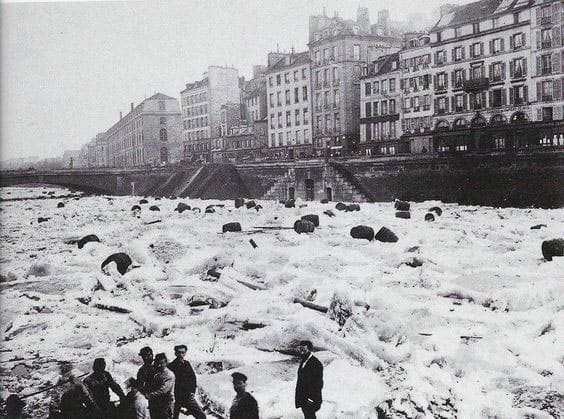The freezing temperatures in Europe resulted in a significant number of deaths and caused major disruptions in two wars. What was the cause of this sudden drop in temperature, could this happen again?

In 1709, the temperature dropped drastically overnight, what became known as “Le Grand Hiver,” caused a freeze across Europe that lasted for three months. In France, the coldest winter in 500 years resulted in numerous deaths, food scarcity, frozen lagoons in the Mediterranean, and had an impact on a war.
France was the country that experienced the harshest winter, with temperatures dropping to -5°F and heavy snowfall for two weeks starting on January 5. The “Big Frost” had tragic consequences for hundreds of thousands of people.

The French population fell between 1709 and 1710, during which 600,000 more people died and 200,000 fewer births than in an average year for the time—a demographic deficit that crippled an already weak economy.
The winter in Europe that holds the record for being the coldest in 500 years still baffles scientists, who have proposed different explanations for it.

Several volcanoes in Europe, including Teide, Santorini, and Vesuvius, erupted in previous years. The resulting dust and ash in the atmosphere caused a decrease in the amount of sunlight reaching the Earth.
The year 1709 also falls within the period known by climatologists as the Maunder Minimum (1645-1715), when the sun’s emission of solar energy was significantly diminished. Whether these events combined to create Europe’s glacial catastrophe that winter remains a matter of heated debate.
This story originally published in the January/February 2017 issue of National Geographic History magazine which has been edited by Clean-Future Team






